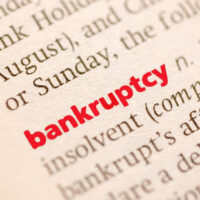What is a Homestead Exemption in Bankruptcy?

If you are considering a personal bankruptcy filing in Florida, it is essential to speak with a St. Petersburg bankruptcy attorney who can provide you with information about the bankruptcy process and can clarify how exemptions work and apply to individual cases. Generally speaking, in a Chapter 7 bankruptcy case — which is a type of liquidation bankruptcy — filers are able to retain any exempt property. Exemptions are set forth under Florida state law, and there are a wide range of exemptions. Exemptions also apply to Chapter 13 bankruptcy cases, but since this type of bankruptcy does not involve liquidation of non-exempt assets, exemptions are used in cases to determine the amount of monthly payments in the debt reorganization plan.
An extremely important exemption in Florida is the homestead exemption. If you have already begun researching bankruptcy exemptions, or if you are certain that you have plans to file for Chapter 7 or Chapter 13 bankruptcy in Florida, you should learn more about this particular exemption. While it exists in most states, Florida’s homestead exemption is significantly more generous than in many other states. Our St. Petersburg bankruptcy lawyers can tell you more.
Learning About the Homestead Exemption
A homestead exemption is a specific exemption that is available to bankruptcy filers to exempt a certain amount of equity in their home. Many states have homestead exemptions, and they allow an individual filing for bankruptcy to retain a specific amount of equity as long as the home is their primary residence. Depending on the state — and this is true in Florida, as well — a bankruptcy filer can be eligible to exempt additional amounts of personal property if they do not use the homestead exemption (in other words, if they choose not to exempt equity in their home or do not own a home with equity to exempt).
Florida’s homestead exemption is different from most other states, however, in terms of the amount of equity a homeowner can exempt. Under Florida law, you can exempt all of the equity in your home in Florida — the exemption is for an unlimited amount of equity.
Requirements for Using Florida’s Homestead Exemption
To use Florida’s homestead exemption, the property must be your primary residence. In addition, you must have owned it for at least 1,215 days before the date you file for bankruptcy. Finally, your residence cannot be bigger than 0.5 acres if you live in a municipality, or bigger than 160 acres if you live outside a municipality.
Contact a Consumer Bankruptcy Attorney in St. Petersburg, Florida
When you are planning to file for individual bankruptcy in Florida, statutory exemptions will be very important to your case. Although some states permit debtors to choose between federal and state exemptions, Florida law requires debtors to use state exemptions, and the homestead exemption will be critical to your case if you are a homeowner. Whether you have questions or you need assistance with your bankruptcy case, one of the experienced St. Petersburg bankruptcy attorneys at the Law Offices of Stephen Barszcz can help you. Do not hesitate to get in touch with us to begin working on your bankruptcy filing.
Source:
leg.state.fl.us/statutes/index.cfm?App_mode=Display_Statute&URL=0200-0299/0222/0222.html






